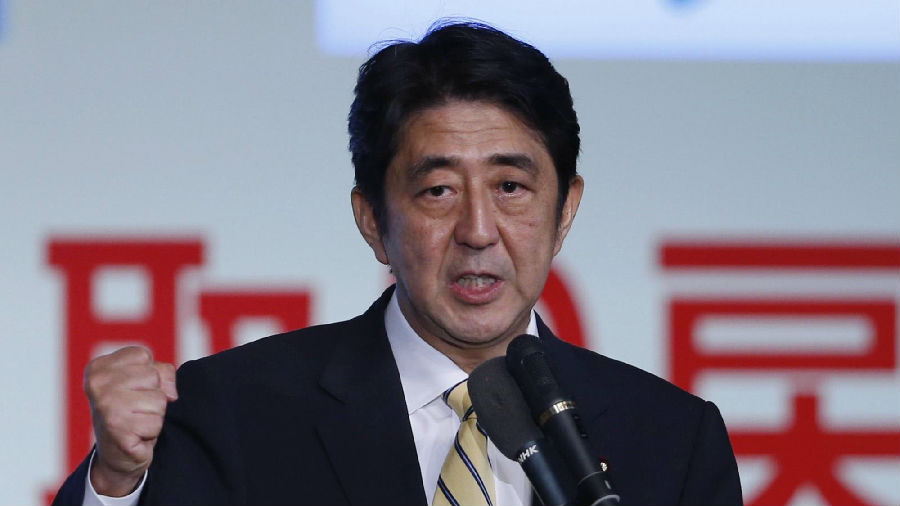Finance and economics: Inequality in Japan The secure v the poor
財經:日本社會的不平等,穩定工作者與窮人
The problem is not the super-rich.
問題不在于巨富之人。
IN THOMAS PIKETTY'S bestseller, “Capital in the Twenty-First Century”, Japan appears as another rich country in which wealth is becoming ever more concentrated.
在托馬斯·皮克提的暢銷書《21世紀資本論》中,日本作為一個財富正在變得越來越集中的富有國家出現。
It is certainly another rich country in which the book is selling well.
當然,它也是又一個暢銷此書的富有國家。

Mr Piketty visited Tokyo this month, to a rapturous reception.
本月,皮克提先生應盛情邀請訪問了東京。
Yet Japan may be the place where his thesis holds up least well.
然而日本還是一個對他在本書中的思想最不追捧的國家。
The bursting of Japan's asset bubble in 1991 is one reason why the rich have amassed less than in America or many European countries.
1991年,日本地產泡沫就破滅了。這是日本富人源何比美國或一些歐洲國家的富人聚集財富較少的原因之一。
The share of wealth held by the richest tenth of Japanese is lower than in famously egalitarian spots such as Norway and Sweden.
占日本人口十分之一的富人所握有的財富比挪威和瑞典的富人們要少,后兩者是以平等主義聞名與世。
In fact, it is the second-lowest of the 46 economies surveyed by Credit Suisse Research Institute, above only Belgium.
事實上,根據瑞士信用研究所對46個經濟體在這方面的調查,日本位列倒數第二,僅高于比利時。
The share of income going to the wealthiest has been fairly stable too.
國民收入中流向富人的比例也已相當穩定了。
Levels of executive pay are far less egregious than in America.
只對富人們征收的費用又遠低于美國。
According to an analysis prepared for the Wall Street Journal by Mr Piketty's collaborators, the share of national income taken by the top 1% in Japan, excluding capital gains, fell from a high of 9.5% in 2008 to 9% in 2012.
根據出自皮克提合作者的一份“華爾街新聞”的分析報告,不包括資本收益,占日本人口1%的上層人士所占有的國民收入比例已經從2008年的9.5%下降到了2012年的9%。
Other types of inequality, however, are on the rise.
然而其他類型的不平等也在增加。
The most important is not between the mega-rich and the rest, as “Capital” would have it, but between a privileged cadre of workers on permanent contracts and those with more precarious jobs, who account for a rising share of the workforce.
最重要的是這些上升的不平等不是存在于巨富與其他人之間,而是存在于簽訂了終生勞動合同、享有特權的骨干工人與比例越來越大的那些工作更不穩定的勞動力之間。
The average annual salary for permanent employees is around ¥5m ($41,500) , compared with ¥2m for less secure workers.
長期工作者的平均年薪是約500萬日元(41500美元),而工作不穩定者僅為200萬日元。
Many argue that what Japan really needs is a lot more inequality, but of a different kind.
一些人認為日本的不平等現象有所增加,但類型不同。
Its employment system still tends to reward seniority and status rather than performance, in what Japanese call aku byodo or “bad egalitarianism”.
它的雇傭體系仍趨向于讓高級別和地位的雇員獲得更多,而非根據受雇者的工作表現,這就是日本人所謂的“糟糕的平均主義”。
If people were paid for what they accomplish, argues Robert Feldman of Morgan Stanley, the economy would grow faster.
如果實行按勞取酬,那么日本的經濟將會獲得更快的發展,摩根斯坦利公司的羅伯特·菲德曼如是說。
And Japan's chronically low levels of business creation mean that there is worryingly little wealth inequality of the sort created by entrepreneurs who become billionaires by dreaming up exciting new products and services.
對于那些力求以創造出令人興奮的新產品和服務而躋身百萬富翁行列的創業者們來說,日本長期低水平的商業創造意味著這方面的財富差距不夠大,令人擔心。
None of that has stopped “Capital” selling over 130,000 copies so far in Japan.
以上這些都不能阻擋《21世紀資本論》這本書在日本迄今為止的銷量已超過了13萬本。
Idiots' guides to the 700-page tome have also done well.
Idiots’ guides公司對這部700頁的大部頭所作的也非常棒。
Mr Piketty's timing is ideal, for he has tapped into growing doubts about Abenomics, the economic-revival plan of Shinzo Abe, the prime minister.
皮克提先生的時間把握得很完美,因為他已將人們對于日本現任首相安倍的經濟復興計劃,即安倍經濟學不斷上升的疑慮寫進了書中。
By inflating asset prices, Mr Abe's schemes could increase the gap between haves and have nots, Mr Piketty warned during his visit.
皮克提先生在本月的訪問期間警告說,通過提高地產價格,安倍計劃可能會拉大既得與未得之間的差距。
Ironically, however, Mr Abe's main economic concern at the moment is bullying big companies into lifting workers' pay.
然后諷刺的是,安倍在現階段對于經濟的主要關注是迫使大公司提升工人的工資。
譯文屬譯生譯世











